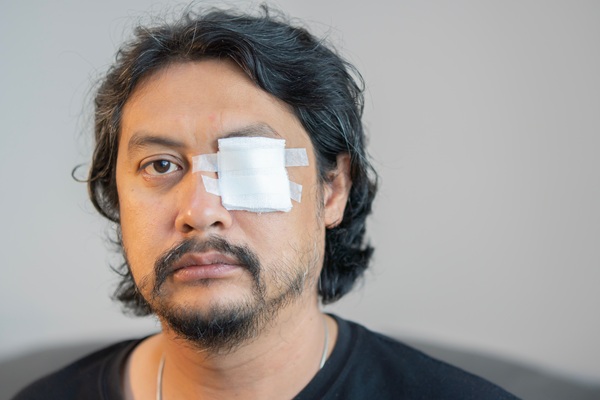Understanding the Importance of Timely Emergency Eye Care

Vision health is an important part of your everyday life. When urgent and unexpected issues arise, you must seek emergency eye care from an optometrist. Whether the issue results from trauma, infection, or sudden changes, immediate attention from an optometrist can prevent complications and preserve your long-term ocular health.
Common eye emergencies that require immediate care
Individuals may need emergency eye care for various reasons, such as injuries, infections, or sudden changes in their vision. Recognizing the signs of a serious eye problem can help them get treatment as soon as possible and prevent long-term damage to their eyes.
Eye injuries
Trauma to the eye can result from accidents, chemical exposure, or foreign objects. Blunt force injuries, such as those sustained in sports or falls, can lead to retinal detachment or internal bleeding. Sharp objects or chemicals may cause corneal abrasions or burns, requiring immediate treatment from an optometrist. If left untreated, these injuries can lead to infections or structural damage, further compromising vision.
Infection and inflammation
Eye infections, such as bacterial or viral conjunctivitis, can cause redness, pain, and discharge. Severe cases may lead to corneal ulcers, increasing the risk of permanent vision loss. Conditions like uveitis or keratitis require emergency eye care to prevent further complications. Additionally, systemic infections, such as herpes simplex virus, can cause significant ocular damage if not addressed immediately.
Sudden vision changes
A sudden decrease in vision, the appearance of floaters, or flashes of light may indicate serious underlying conditions. Retinal detachment, optic neuritis, or acute glaucoma can progress rapidly. If patients experience sudden changes in their vision, they should seek immediate evaluation to prevent lasting visual impairment.
Emergency eye care from an optometrist
Optometrists diagnose and treat urgent ocular conditions. Optometrists can use advanced diagnostic tools to identify underlying causes of vision disturbances or discomfort. For infections, they may prescribe antibiotics or antiviral medications. Meanwhile, injuries may require pain management and protective measures. Conditions like acute glaucoma necessitate immediate intervention to reduce intraocular pressure and prevent optic nerve damage.
Delaying treatment for eye emergencies can result in complications, including vision loss or chronic discomfort. Seeking prompt attention allows optometrists to mitigate risks and implement effective treatment plans. Early management of conditions like diabetic retinopathy or hypertensive retinopathy can prevent severe complications that could lead to blindness.
Certain conditions, such as retinal tears or severe trauma, may require specialized intervention. Optometrists can refer patients to ophthalmologists or ocular surgeons for advanced procedures, ensuring they have access to comprehensive care. Surgical procedures, such as laser therapy for retinal tears, can make a significant difference in preserving the patient's long-term vision.
The impact of delayed emergency eye care
Even when recognizing certain vision issues, some patients are hesitant to receive care, commonly due to using home or over-the-counter remedies. However, this is a bad idea because it increases the chances of:
Risk of vision loss
Delays in treatment may result in infections spreading, increased intraocular pressure, or permanent structural damage to the eye. Conditions like retinal detachment or untreated infections can cause irreversible vision impairment. Seeking immediate care minimizes this risk and enhances the likelihood of successful treatment. Sudden vision loss due to a vascular blockage, such as a retinal vein occlusion, requires urgent evaluation to prevent further complications.
Increased pain and discomfort
In cases of ongoing inflammation or untreated injuries, patients may develop chronic ocular pain. Addressing eye emergencies as soon as possible can alleviate the patient's discomfort and prevent the symptoms from worsening. When left untreated, conditions like corneal abrasions may develop into painful corneal ulcers requiring prolonged treatment.
Higher treatment costs
Getting treatment can help patients avoid expensive medical procedures. Waiting too long for treatment might lead to surgery or prolonged medication use, which can increase the patient's financial burdens. By preventing complications from occurring, emergency eye care helps reduce patients' long-term healthcare expenses.
Preventative measures to reduce the risk of eye emergencies
Although some eye emergencies are unavoidable, taking precautions can reduce the risk of serious incidents. For example, wearing protective eyewear during sports or hazardous activities can prevent traumatic injuries. Practicing good hygiene, such as avoiding eye rubbing and properly cleaning contact lenses, can minimize the risk of ocular infections. Additionally, individuals with chronic conditions such as diabetes or hypertension should schedule regular eye exams with an optometrist to detect potential vision issues early.
Get the emergency eye care you need
Emergency eye care preserves vision and overall ocular health. Prompt evaluation and treatment from an optometrist can prevent long-term complications, reduce discomfort, and ensure the best possible outcomes. Texas Optical offers emergency eye care in the Dallas area. Call our office today to schedule an appointment and get the care you need.
Request an appointment here: https://www.texasoptical.net or call Texas Optical at (214) 771-7333 for an appointment in our Dallas office.
Check out what others are saying about our services on Yelp: Read our Yelp reviews.
Recent Posts
Dry eye treatment is important when occasional irritation becomes ongoing discomfort that interferes with daily activities. Many individuals experience dryness, burning, or a gritty feeling in the eyes from time to time. However, when symptoms start to affect reading, screen use, or time outdoors, a structured approach to diagnosis and care helps protect comfort and…
Myopia control focuses on slowing the progression of nearsightedness, primarily in children and teens, to help protect long-term eye health and day-to-day vision. Myopia occurs when the eye grows too long or the cornea curves too steeply, which causes distant objects to appear blurry. As the prescription increases, the risk of future eye disease also…
Retinal photography gives optometrists a detailed view of the back of the eye. When done regularly, they are often able to spot early signs of disease before symptoms affect daily vision. This advanced imaging tool helps create a clear record of eye health over time and supports smarter decisions about treatment and follow-up care. Learning…
Red, itchy eyes can affect your everyday comfort and reduce overall well-being. It is important to seek effective vision care from the first sign of irritation. Proper attention to symptoms, underlying causes, and healthy habits ensures stronger long-term eye health and greater day-to-day clarity. Redness and itchiness often stem from several common triggers. These include: Allergic…


